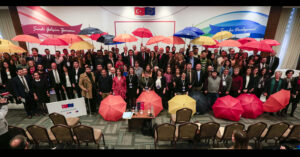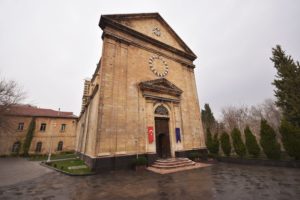
Technical Assistance for Implementation of Civil Society Dialogue and Civil Society Support Programmes (TR2015/DG/01/A5-01/001)
The overall aim of the project is to increase bilateral exchanges and cooperation between CSOs in Turkey and the EU at local, regional and national levels, to promote awareness raising initiatives on importance and benefits of membership of Turkey to the EU within Turkey and EU and on

Support for Policy Reform Accession and Effectiveness (SUPRAE)
In March 2020, North Macedonia began accession negotiations with the EU. However, the country still needs to meet EU standards, enact essential reforms, and institutional capacities to comply with the acquis and clusters. The project’s goal is to assist North Macedonia in its EU accession by increasing strategic

Strengthening of an Integrated Strategic Approach to Increase the Efficiency and Productivity of IPA Funds during the Third Period (2021-2027)
This project’s main objective is to further increase and consolidate administrative capacity of the Turkish administration for more effective and efficient management and absorption of IPA funds, in addition to strengthen the capacity of NIPAC and other relevant institutions in the area of strategic planning and programming, proper

Technical Assistance on Mental Health Care and Drug Addiction Treatment Services in Prisons
Mental health and drug addiction are challenges for penitentiary systems all over the world. The purpose of this project was to tackle these issues in Turkish prisons and to bring the country’s penal services into line with international and European standards.

Technical Assistance to Implementation of Civil Society Support Programme
The overall objective of the project is to support the development of civil society through more active democratic participation in policy and decision making processes and by promoting a culture of fundamental rights and dialogue.

Technical Assistance for EU-Turkey Anatolian Archaeology and Cultural Heritage Institute
The project is intended to improve intercultural dialogue between Turkey and the EU by protecting and promoting items of common cultural heritage and by strengthening civil society dialogue on such matters. It will improve access to the archaeological heritage and historical works of ancient Anatolian civilizations by identifying,

